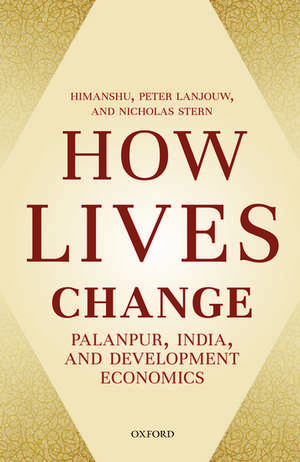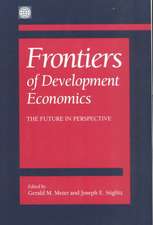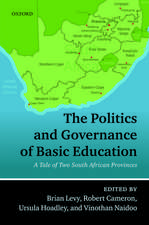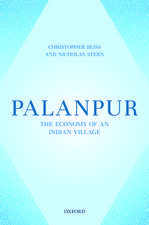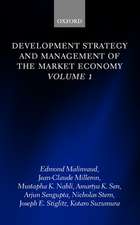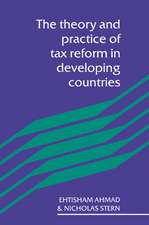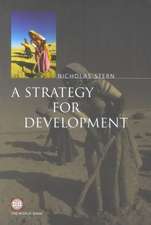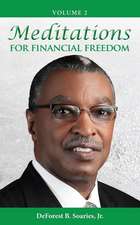How Lives Change: Palanpur, India, and Development Economics
Autor Himanshu, Peter Lanjouw, Nicholas Sternen Limba Engleză Hardback – 21 aug 2018
Preț: 347.81 lei
Preț vechi: 472.41 lei
-26% Nou
Puncte Express: 522
Preț estimativ în valută:
66.55€ • 69.67$ • 55.07£
66.55€ • 69.67$ • 55.07£
Carte disponibilă
Livrare economică 04-10 martie
Preluare comenzi: 021 569.72.76
Specificații
ISBN-13: 9780198806509
ISBN-10: 0198806507
Pagini: 528
Dimensiuni: 162 x 241 x 33 mm
Greutate: 0.89 kg
Editura: OUP OXFORD
Colecția OUP Oxford
Locul publicării:Oxford, United Kingdom
ISBN-10: 0198806507
Pagini: 528
Dimensiuni: 162 x 241 x 33 mm
Greutate: 0.89 kg
Editura: OUP OXFORD
Colecția OUP Oxford
Locul publicării:Oxford, United Kingdom
Recenzii
How Lives Change is a remarkable book which brings together two qualities seldom seen concurrently-empathy for the subject, in this case the inhabitants of Palanpur, usually found in anthropological writings, and the rigor of statistics and theory, associated with economics. This new book provides a keen, bird'seye view of research in rural India, with scholarship and a lightness of touch rare in economics. What makes this latest book especially valuable is the authors' use of Palanpur as a testing ground of what has happened all over India. The experience of Palanpur is used by the authors to offer useful tips to India-the importance of education, human capital and better vocational training, and the need for even greater connectivity to towns and cities.
For development economists, this fascinating book about 60 years of development in a poor Indian village reads like a saga, yet a saga that tells not only about the lives of people and how they changed throughout three generations in parallel with the transformation of India, but also about the relevance of development theory in understanding the causes and the features of change. An absolute "must-read" book.
How Lives Change is the outcome of the latest in a unique, and continuing, series of studies of the lives and livelihoods for all the households in one village in the largest state of India over seven decades. It is a landmark in the interface of development economics and economic anthropology, focusing on drivers of economic and social transformation, and on interaction of markets, institutions and opportunities, and deriving lessons for development theory and policy. There is much to learn from this in-depth study.
The three Palanpur volumes are a monument to serious social science; social science at its best. I don't know of anything like them.
This gold mine of a book provides a rare dynamic view of development as fundamental change in peoples lives: it provides the film, not just a snapshot or two. It is an outstanding contribution.
For development economists, this fascinating book about 60 years of development in a poor Indian village reads like a saga, yet a saga that tells not only about the lives of people and how they changed throughout three generations in parallel with the transformation of India, but also about the relevance of development theory in understanding the causes and the features of change. An absolute "must-read" book.
How Lives Change is the outcome of the latest in a unique, and continuing, series of studies of the lives and livelihoods for all the households in one village in the largest state of India over seven decades. It is a landmark in the interface of development economics and economic anthropology, focusing on drivers of economic and social transformation, and on interaction of markets, institutions and opportunities, and deriving lessons for development theory and policy. There is much to learn from this in-depth study.
The three Palanpur volumes are a monument to serious social science; social science at its best. I don't know of anything like them.
This gold mine of a book provides a rare dynamic view of development as fundamental change in peoples lives: it provides the film, not just a snapshot or two. It is an outstanding contribution.
Notă biografică
Himanshu is Associate Professor of Economics at the Centre for Economic Studies and Planning at Jawaharlal Nehru University,and Visiting Fellow, Centre de Sciences Humaines, New Delhi, India. His areas of research include issues related to poverty, inequality, employment, food security, and agrarian change. He has been involved with various government committees including the Expert Group on Measurement of Poverty (Tendulkar Committee), National Statistical Commission, and the Ministry of Rural Development. He has received the Sanjay Thakur Young Economist Award of the Indian Society of Labour Economics and Personnalité d'Avenir of the French Ministry of Foreign Affairs. Himanshu received his PhD in economics from JNU, New Delhi, India.Peter Lanjouw is a Professor of Development Economics at VU University, Amsterdam. Prior to joining VU University he spent more than two decades in the Development Economics Research Group of the World Bank, most recently as Manager of the Poverty and Inequality team. He is current editor of the World Bank Research Observer and a past assistant editor of the World Bank Economic Review. He is a fellow of the Tinbergen Institute and the European Development Research Network, and was a core member of the Global Poverty Commission. His principal research interests include the measurement and analysis of poverty and inequality in developing countries, structural transformation in developing countries, structural transformation in developing countries and the contribution of longitudinal village studies to the analysis of rural development.Nicholas Stern is the IG Patel Professor of Economics and Government, Chairman of the Grantham Research Institute on Climate Change and the Environment and Head of the India Observatory at the London School of Economics. He was previously President of the British Academy, and is President of the Royal Economic Society 2018/19. He was Chief Economist of the European Bank for Reconstruction and Development, 1994-1999, and Chief Economist and Senior Vice President at the World Bank, 2000-2003. He was Head of the Stern Review on the Economics of Climate Change (2006); and Head of the Government Economic Service from 2003-2007.Lord Professor Stern was knighted for services to economics in 2004, made a cross-bench life peer as Baron Stern of Brentford in 2007, and appointed Companion of Honour for services to economics, international relations and tackling climate change in 2017. He has published more than 15 books and 100 articles.
